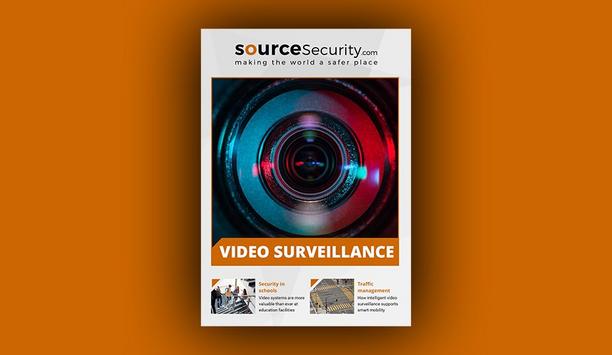Healthcare security applications - Round table discussions
Higher pixel count is better. It’s a basic tenet of the video surveillance market, or at least it is the implication as manufacturers continue to tout their latest products offering ever-higher pixel counts. But the reality is more nuanced, as our Expert Panel Roundtable panelists explain this week. Pixel count shouldn’t be seen as an end unto itself, but rather as a factor in determining what camera is applicable to which application. Pixel count is just one factor of several to con...
We in the physical security market tend to watch closely how the buying decision is made. If anything, the buying process has become more complex in recent years. We have seen the impact of security systems extending beyond the core security department, and with greater impact come more stakeholders. “Buying by committee” is more the rule than the exception, and the committee is getting rather large in some situations. We asked this week’s Expert Panel Roundtable: Who should be...
More cameras today are providing more video than ever, but how much of the video is available when and how it is needed? The question often comes up when law enforcement entities are seeking to access video from private systems to help solve a crime. There are many more private video systems than public systems, but is the video available when needed? And what about privacy: In what situations is it acceptable to share private video for the public good? We took these questions to this week&rsquo...
When a big security breach occurs, the phones start ringing at security companies, or so the expectation goes. The nature of security is that it takes a security breach, or even a high-profile tragedy, to convince managers of the need for security technology. When a school shooting occurs, schools take note. When terrorism strikes a soft target, other vulnerable institutions notice. Same for hospitals and airports and even nightclubs. When an event occurs, it gets attention that could translate...
IP network dependability matters in physical security and safety applications, given that a company’s assets and people are at risk. There have been strides in the areas of network dependability, fault-tolerance, reliability, and survivability. However, networks (or affordable ones, at any rate) still cannot ensure near-100 percent uptime, which is why system designers acknowledge and plan for the possibility of a network outage. We asked this week’s Expert Panel Roundtable: How can/...
Sometimes you see it coming and want to scream out: “Don’t do that.” We all make mistakes, but it’s hard to sit and watch others as they go down the wrong path. It’s especially difficult when the errant party is a customer, and when their wrong move might somehow end up reflecting badly on you as a technology or security systems provider. Much better to anticipate the problem by expecting the possible mistake before it happens. We asked this week’s Expert Pane...
Distributors have traditionally played an important role in the physical security market, ensuring ready availability of products that systems integrators need to complete their projects. But a changing industry has had dramatic impact all along the supply chain of which distributors are a critical link. We asked this week’s Expert Panel Roundtable: How is the role of distributors changing in the market, and what is the impact?
Sometimes customers expect more out of a security system. A brand new security system just doesn’t perform as the customer expected it would. In fact, one might argue that the many variables in today’s complex systems make it more likely than ever that some element of a system might not measure up to a customer’s expectations. What happens then? We asked this week’s Expert Panel Roundtable: What happens if a customer’s expectations of system performance are greater...
Software drives video solutions in the IP environment, but often that software is a pre-installed component of a purpose-built network video recorder (NVR). In other cases, software solutions are sold separately and then installed (usually by the integrator) on a commercial off-the-shelf (COTS) server. But how can an integrator or end user decide which approach is best for them? We asked this week’s Expert Panel Roundtable: What are the advantages and disadvantages of using a pre-configure...
Big security trends are driving change in the physical security market. We see change happening around us every day, and much of it is disruptive to the status quo. We asked this week’s Expert Panel Roundtable: What has caused the greatest disruption to the physical security market in the last 12 months?
Our society is engulfed in social media, from Facebook to Twitter to YouTube and all the rest. Among other benefits, social media provides an immediate and accessible form of communication. They say that social media is changing everything in our society, so we wondered what specific impact social media might have on the security marketplace. We asked this week’s Expert Panel Roundtable: What role can social media play in the security marketplace and/or as a tool to promote better security...
Here we are already at mid-year, and 2016 has been an eventful one for the security marketplace, dominated by mergers and acquisitions and lots of new products coming to the market. But what’s the outlook for technology in the second half of the year? What technologies will draw the most attention and drive the market into 2017? We asked this week’s Expert Panel Roundtable: What technology buzz will dominate the security industry in the second half of 2016?
Environmentalism is a universal consideration in most business sectors in 2016. Whether seeking to provide greener products, or looking for new ways to minimise waste of manufacturing processes, most companies are involved to some degree with environmental concerns. Green has not traditionally been a big driver in the security industry, but there are indications the profile of environmentalism is increasing. We asked this week's Expert Panel: How green (environmentally friendly) is the security...
Does seeing video cameras at a location make you feel safer or less safe? Do you feel better to know that video surveillance is capturing everything that happens, thus discouraging crime? Or do you think: What kind of neighbourhood (or store) is this that needs a CCTV camera watching everything? Do you feel more secure when the security guard at the hotel elevator asks to see your room key? Do airport screenings ease your mind about getting on an airplane with 100 strangers? The “perceptio...
It’s a challenging time for security integrators and installers. Equipment prices are going down (along with margins), and commoditisation is wiping away what used to be the advantage of exclusively offering a top product brand. Integrators can continue to succeed by finding a way to move ahead of the pack – but how? We asked this week’s Expert Panel Roundtable: How should integrators/installers differentiate themselves or make themselves stand out in today’s market?
Ensuring privacy is often a concern for video surveillance systems, especially in situations where a system intended for “public” surveillance could somehow, perhaps inadvertently, view private areas or situations. The classic example is an apartment building whose windows are within the range of a video surveillance camera. How can you provide video surveillance without invading the privacy of the apartment dwellers? Integrators and end users often turn to technology for a solution....
How mobile telephones have transformed into “smartphones” is one of the great technology stories of our time. What once was a single-function device now can do almost anything – display video, pay for groceries, monitor our health. The smartphones we carry in our pockets today have more computing power than the “super computers” of yesteryear, and that power has found many uses in a seemingly endless array of “apps.” Some of them are directly related to...
As more security equipment categories become commoditised, a previously rich source of income for integrators and installers – markup – is becoming harder to come by. Less expensive products with little to no perceptible value differentiation leave integrators with few options, not to mention the growth of pricing transparency that comes courtesy of the Internet. We asked this week’s Expert Panel Roundtable: Given the increase in commoditised hardware (i.e., lower profit margin...
The security market in the United States has been in a collective state of exhilaration since ISC West. The (possibly) unprecedented success of the big trade show has left us all feeling optimistic about the year ahead. Members of our Expert Panel Roundtable are joining the chorus of compliments for the show as they answer this week’s question: How successful was ISC West 2016? Did it meet your expectations?
Cities are increasingly connected using information and communication technologies, a trend often referred to as “smart cities.” In much the same way, “safe cities” initiatives are uniting businesses, city officials, law enforcement and other stakeholders in an effort to maximise the safety of businesses and citizens and to minimise theft and crime. Safe cities programmes seek to leverage a variety of resources, including public-private partnerships, to make urban communi...
Women in Security will be a focus at this year's ISC West in Las Vegas, including targeted conference sessions and the Women in Security Forum Breakfast on Friday, April 12. As a preview of the upcoming events, let's revisit an Expert Panel Roundtable on this subject. We asked: How is the role of women in the physical security market changing and expanding?
One of the things all security systems have in common is that they depend on human operators, to one extent or another. But how often is the human factor overlooked in product design? Sometimes, more focus is aimed at increasing the functionality of a system, even at the expense of usability. That’s how we get systems that have more capabilities, although accessing that functionality may be hopelessly complex. Creating effective graphical user interfaces (GUIs) is an ongoing challenge for...
Terrorism is in the headlines all over the world. After any such incident, many of us in the physical security market find ourselves asking: What could we have done to prevent it? Assessing risk and preventing catastrophes before the fact are part of our market’s DNA; and yet, too often the random nature of terrorist attacks and their targeting of public places leave us unsure of anything anyone could have done. How can we translate the benefits of our industry’s products into real-w...
We hear that everything is going to the cloud – or is it? Security end users can be understandably confused by conflicting claims in the market from proponents of cloud-based or server-based systems. A number of major security companies are offering cloud video surveillance solutions apart from the traditional server-based systems. At the end of the day, how do you choose? What factors should be considered? We asked this week’s Expert Panel Roundtable: What factors should a customer...
A major benefit of technology innovation is more application opportunities. As video cameras become better and more versatile, new uses are emerging that extend the benefits of video surveillance, often outside tried-and-true parameters. Sometimes security camera manufacturers are on the front lines to see new ways video is contributing value to integrators and end user customers. We asked this week’s Expert Panel Roundtable participants: What is the most unusual application of surveillanc...
As the security industry continues to evolve and come up with innovative technologies, it has also thrown open the doors for competition among manufacturers of security systems and products. Price wars are emerging in the physical security market, while manufacturers and integrators are looking for new ways to offer greater value and better service. It’s one thing to fight it out for a new customer, but nobody wants to lose an existing customer based on price, or any other factor for that...
One of the benefits of newer IP systems is the ability to store video inside the camera or in a nearby digital video recorder (DVR) at the edge of the network. Edge-based storage is unlikely to take the place of centralised storage, but it is complementary and provides some interesting new options related to system design. We asked this week’s Expert Panel Roundtable: What is the value of edge-based storage and in what specific applications?
Will 2016 see faster adoption of video analytics? Will cyber-security have more impact on physical security? Is the market likely to see greater use of cloud-based products and services? Will technology help to drive greater involvement by everyday citizens in public safety initiatives? Could the market focus shift from selling products to selling solutions? We asked this week’s SourceSecurity.com Expert Panel to look ahead to 2016, and these were some of the surprises they see in o...
For several years now, the video surveillance market has been involved in the “megapixel race,” with manufacturers touting ever-higher pixel counts on their shiny new models. The implication, though not necessarily stated overtly, is that a higher pixel count is equivalent to a better picture. Too simple, says this week’s Expert Panel Roundtable participants, or more to the point: Not true. But where does that leave customers? We asked this week’s Expert Panel Roundtable:...
Video cameras are smarter than ever. Video analytics functionality is available inside most cameras now on the market. Smarter cameras enable a system with distributed intelligence and also help to manage bandwidth and storage – on-camera intelligence can determine what video is important enough to tie up network resources and to eventually be retained or viewed. But on-camera video analytics have their limitations, and additional video intelligence at the server can add a new range of fun...































